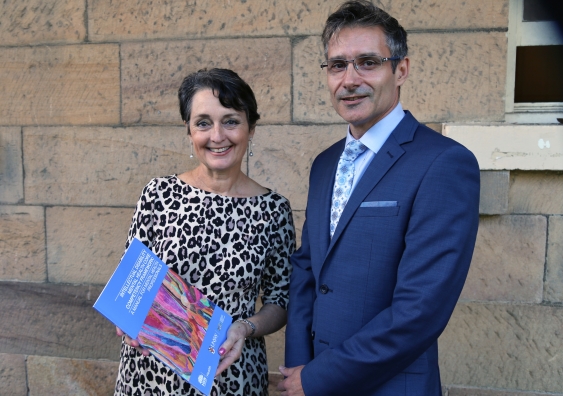Mental health treatment for the 135,000 people in New South Wales living with an intellectual disability is set to improve, thanks a world-first manual to guide mental health professionals.
The Intellectual Disability Mental Health Core Competency Framework for Mental Health Professionals was launched today by UNSW’s Chair in Intellectual Disability Mental Health, Professor Julian Trollor and the NSW Minister for Mental Health, Pru Goward.
The manual was commissioned following Australian research that found most mental health professionals lack confidence managing mental disorders in people with an intellectual disability. This is compounded by the poor access to services and treatment outcomes for this group, who experience mental health problems at a rate three to four times higher than the rest of the population.
Professor Trollor said meeting the mental health care needs of Australians living with an intellectual disability remained a huge challenge facing the mental health workforce.
“We still have some way to go in this area, but we expect the manual will help mental health professionals to assess and respond to the mental health needs of this vulnerable group, to a standard that meets community expectations,” Professor Trollor said.
“By equipping mental health staff with increased awareness, practical tools and a professional development framework, the manual aims to improve the quality of mental health service that a person with an intellectual disability receives.”
Meeting the mental health care needs of Australians living with an intellectual disability remains a huge challenge facing the mental health workforce.
Ms Goward said the new manual also outlined important issues from the perspective of people with an intellectual disability, their families and support networks.
“This manual is going to make a difference to the mental health and wellbeing of people with intellectual disabilities,” Ms Goward said.
The NSW Government has funded the UNSW Chair in Intellectual Disability Mental Health since 2009. In 2015, a further $3.9 million was committed to continue the work of the Chair to help improve the mental health and wellbeing of people with intellectual disabilities through to 2020.


